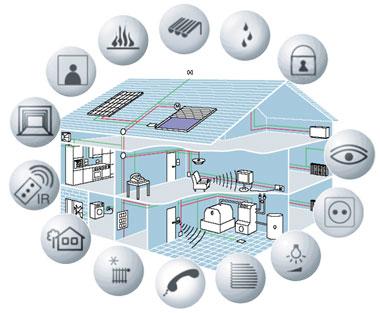Probable calco del francés domotique, atestiguada en esta lengua al menos desde 1987, en Modernissimots: Le Dictionnaire du temps present, de A. Dupas y J. Frèches (París, J. C. Lattès). Hacia 1990 hubo un intento de adaptar al español esta forma mediante la voz hogarótica, que no logró prender en la lengua.
La domótica se encarga de integrar y regular la electricidad y la electrónica para poder detectar la presencia de personas, la temperatura, la luz, etc., y reaccionar ante esas señales, proporcionando un mayor nivel de comodidad y protección.

Domótica
http://blog.deltoroantunez.com/2012/05/la-domotica-de-un-capricho-para-…
«Mucha gente con Alzheimer u otras enfermedades de demencia, necesita algún tipo de control varias veces al día. Por ejemplo para ver que han realizado tareas básicas como haberse levantado por la mañana, tomado la medicina, vestido, salido para comer, acostado por la noche, etc. Alguna o varias de las visitas rutinarias de control que el personal realiza pueden ser sustituidas con sensores, por ejemplo de presencia en el baño, movimiento en la caja de medicinas, en la cama que avisa que la persona está acostada por la noche o que se ha levantado por la mañana, etc.» (Junestrand et al., 2005: 84).
«Las personas mayores son cada vez más conscientes de la importancia de la tecnología para mejorar su salud y su vida cotidiana. Un estudio llevado a cabo por [...] mostró que uno de cada cuatro mayores españoles dependientes utiliza el teléfono móvil y que el 4% hace uso de Internet. El 20% de estos mayores aseguró que, si pudiera disponer de avances en domótica, los utilizaría» (Rogero García, 2010: 21).
Conjunto de sistemas que automatizan las diferentes instalaciones de una vivienda y mejoran el confort y la seguridad.
